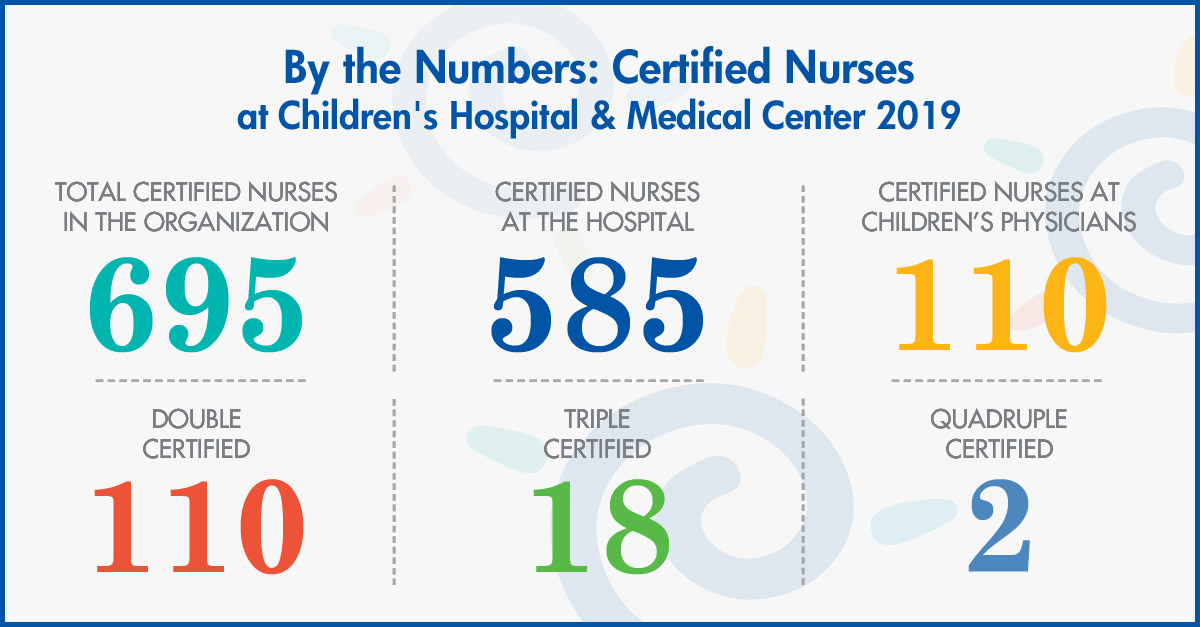
Innovations & Knowledge
at Children’s Nebraska
“To Improve the Life of Every Child.”
This is the mission of Children’s Nebraska, and the mission that our nurses live every day.
Whether it is providing state-of-the-art care to a child with complex needs, comforting a grieving family, teaching a new nursing student, or conducting research to contribute to the body of professional nursing our knowledge, our mission is at the forefront of everything we do.
At the core of our practice, we value caring, compassion, commitment, and courage. We strive towards a vision of leading the future of pediatric nursing through a culture of empowerment and resilience, while consistently providing evidence-based, family-centered and kid-approved nursing care.

Kathy English, MSN, MBA, RN, FACHE
Executive Vice President, Chief Operations Officer
& Chief of Nursing Officer
Children’s Nebraska
The Year in Review
It is my honor to lead such a group and to present their accomplishments in our 2019 annual report. Throughout this report, you will see evidence of their impact on the patients and families who we are privileged to serve, and their contributions to the profession of nursing. I am so proud to highlight their accomplishments which make such a difference at Children’s.
2020 Vision for Nursing at Children’s
In 2020, we look forward to renewing our Magnet designation for the fourth time, as well as our Beacon awards in the NICU and PICU. We are also implementing a comprehensive “door to door” cardiac care unit and preparing to move into a new patient tower that will nearly double our bed capacity.
While 2020 has officially been designated as the Year of the Nurse by the World Health Organization and the American Nurses Association, at Children’s every year is the year of the nurse!
— Kathy English, MSN, MBA, RN, FACHE
Executive Vice President, Chief Operations Officer & Chief of Nursing Officer at Children’s Nebraska
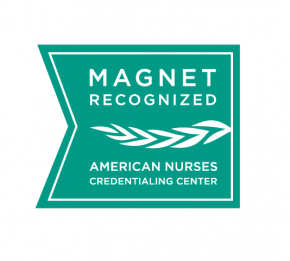
Children’s Nebraska earned Magnet ® status in 2006, 2011, 2016, and is currently submitting documentation for our 4th designation in 2020. The ANCC’s Magnet Recognition Program® is the highest and most prestigious credential a healthcare organization can achieve in relation to quality patient care and nursing excellence. To earn the designation, Children’s met and exceeded evidence-based criteria that shows a safe high-quality health care environment, with an emphasis on:
-
Transformational Leadership
-
Structural Empowerment
-
Exemplary Professional Practice
-
New Knowledge
-
Innovations
-
Empirical Outcomes
We’re Constantly Learning, Innovating, & Improving
The nurses at Children’s Nebraska are committed to advancing knowledge and making contributions to professional nursing.
Nursing Published Articles
-
Early mobilization of infants intubated for acute respiratory failure.
Holding infants in the intensive care unit has been shown to improve health outcomes, but there has been little research on the safety and effectiveness in very young infants (less than 6 months of age). Our research found that holding young infants who are intubated for respiratory failure is safe and does not affect duration of intubation, length of intensive care unit stay, or length of hospital stay.Early mobilization of infants intubated for acute respiratory failure.
Laura Ortmann, MD; Anne Dey, DNP, RN. Published in Critical Care Nurse, 2019, Volume 39, Number 6, 47-53. -
Disclosure of adverse events: A guide for clinicians
One of the most challenging parts of being a clinician is telling patients and their families about adverse events — unexpected outcomes of treatment that harm (or could potentially harm) patients.We developed a program for clinicians that provided training and tools to apply when discussing these events. The program empowered clinicians and improved their confidence in their ability to have these difficult conversations.Disclosure of adverse events: A guide for clinicians.
Kimberly Peterson, MSN, APRN-PCNS-BC, CPN; Mary Rutherford, MD; Denise Drvol, MD; Darlen Barkman; Amber Phipps, MBA, DBA; Roberta Hales, MHA, RRT-NPS, RN, CHSE; et al. Published in Pediatric Quality and Safety, 2019, Issue 4, Volume 4, 1-6. -
Don’t have a doubt, get the catheter out: A nurse-driven CAUTI prevention protocol
Urinary catheters can lead to catheter-associated urinary tract infections (CAUTIs), and the duration of catheter use increases the risk of CAUTI. Catheters that are necessary at first may remain inserted for longer than needed. We developed a guide for the patient’s nurse to use when determining if the catheter is necessary or can be removed. This led to fewer instances of unnecessary catheter use, decreased duration of catheter days, and reduced CAUTIs.Don’t have a doubt, get the catheter out: A nurse-driven CAUTI prevention protocol.
Melissa Schiessler, BSN, RN, CCRN; Lisa Darwin, BSN, RN, CPN; Amber Phipps, MBA, DBA; Lindsay Hegemann, BSN, RN, CPN, CIC; Brenda Heybrock, RN, CIC; Andrew Macfadyen, MD. Published in Pediatric Quality and Safety, 2019, Issue 3, Volume 4, 1-5. -
Implementation of a nursing based order set: Improved antibiotic administration times for pediatric ED patients with therapy-induced neutropenia and fever
When children have chemotherapy-induced neutropenia and fever, they need antibiotics as soon as possible. Administering antibiotics within 60 minutes of arriving at the emergency department (ED) is ideal for reducing the risk of poor outcomes, such as admission to the Intensive Care Unit. We made three practice changes developed three interventions that together resulted in patients receiving their antibiotics significantly faster with 83% of patients receiving antibiotics within 60 minutes — compared to 0% before.Implementation of a nursing based order set: Improved antibiotic administration times for pediatric ED patients with therapy-induced neutropenia and fever.
Tana Lukes, BA, BSN, RN, CPN; Katharine Schjodt, MSN, APRN-PCNS-BC, CPN, CPHON; Leeza Struwe, PhD, MSN, RN. Published in Journal of Pediatric Nursing, 2019, Volume 46, 78-82. -
A retrospective review of patient outcomes in the pediatric HEROES weight management program
Pediatric obesity is a significant public health concern in the US. Our study described the impact of HEROES (Healthy Eating with Resources, Options, and Everyday Strategies) — the stage 3 and 4 weight management program at Children’s. Within the first six months of the program, we found that all participants had decreases in BMI, with the greatest change seen in the children completing education, fitness and exercise interventions. We also found significant improvement in health-related quality of life (HRQOL) scores. The HEROES program impacted physical and behavioral changes for both children and families.A retrospective review of patient outcomes in the pediatric HEROES weight management program.
A retrospective review of patient outcomes in the pediatric HEROES weight management program. Mary Jane Hawkins, BSN, RN, CPN; Shirley Wiggins, PhD, RN; Leeza Struwe, PhD, MSN, RN. Published in Applied Nursing Research, 2018, Volume 43, 18-23.
-
The effect of team configuration on the incidence of adverse events in pediatric critical care transport
When pediatric patients are transferred between US hospitals, they are in the care of specialty pediatric transport teams. However, there has been little consensus in the industry about the best team configuration. Our study compared teams comprised of a) two registered nurses (RNs), and b) one RN and one critical care paramedic who had been through a rigorous training and education program. We found no difference in patient outcomes and safety between the two team configurations.The effect of team configuration on the incidence of adverse events in pediatric critical care transport.
Emily Colyer, BSN, RN, CFRN; Megan Sorensen, BSN, MHA, RN, CEN; Shirley Wiggins, PhD, RN; Leeza Struwe, PhD, MSN, RN. Published in Air Medical Journal, 2018, Volume 37, Issue 3, 186-198. -
Operational impact of a critical care transport duty time tool journal
The Commission on Accreditation of Medical Transport Systems requires transport programs to have tools that address issues such as whether or not to accept a transport request. Patient transport teams often accept all transport requests, even if their shift is about to end. This results in them working overtime, which affects fatigue and alertness, and can put patients and crew in danger. Our goal was to create a risk assessment tool to help transport teams decide if they should accept transfer requests, resulting in less overtime work without negatively impacting transport operations.Since implementing the tool, we have seen a 48% decrease in transports resulting in teams staying over one hour past their shift without decreased transport requests. The tool improves crew and patient safety, and increases awareness of safety as a standard.
Operational impact of a critical care transport duty time tool journal.
Megan Sorensen, RN, MHA, BSN, CEN, NEA-BC; Robert Chaplin, MD, FAAP. Published in Air Medical Journal, 2018, Volume 37, Issue 6, 352-356. -
Utilizing data reporting for transport research
Quality management is fairly new for Emergency Medical Services (EMS). Developing policies and procedures that enable the highest quality of care and safety must be the focus for EMS leaders, and this can only be driven by patient data. However, this data can be difficult for emergency teams to report when they are providing care in the field and do not have as much time for documentation. We implemented a new program called ImageTrend, which makes in-the-field documentation easier and faster. This allowed us to have the data we need to examine emergency patient care and improve EMS.Utilizing data reporting for transport research.
Megan Sorensen, RN, MHA, BSN, CEN, NEA-BC. Published online on Journal of Emergency Medical Services, July 13, 2018. -
Creative play: A nursing intervention for children and adults with cancer
This article explored the role of play in decreasing the anxiety, stress, and social isolation often felt by patients undergoing cancer treatment. Nurses encourage both normative play (play that would happen outside of the hospital, such as puzzles or games) and medical play (using play to explain and address fears about procedures and treatments). Adding play to medical therapy allows children to laugh and act like kids. It also helps nurses care for the ‘whole’ person, which improves job satisfaction and reminds them of why they chose the profession.Creative play: A nursing intervention for children and adults with cancer.
Adrienne Schleisman, BSN, RN; Published in Clinical Journal of Oncology Nursing, 2018, Volume 22, Issue 2, 137-140.
Evidence Based Practice (EBP) Projects
EBP projects are quality improvement initiatives that have led to the implementation of practice changes at Children’s Nebraska.
-
Our EBP Projects
Large volume infusion tubing set-up in the NICU: Are Buretrols necessary?
2019 – NICU Staff RNs
Taylor Kolvek, BSN, RN & Hannah Walgren, BSN, RNAutologous Blood Storage & Administration in the PICU
2018-2019 – PICU Staff RN
Julie Johnsen, BSN, RN, CPNImplementation of Area Specific Safety Huddles
2018-2019 – Council on Outcomes, Research, & Evidence-based practice (CORE) team project
Co-leaders: Kirsty Eden, BSN, RN, CPN, Staff RN Short Stay Unit & Amy Phillips, MSN, APRN-CNS, CCRN-KTriage Training in the ED: Development of an Evidence-based Program
2018-2019 – ED Staff RN & Clinical Educator
Lisa Harner, BSN, RN, CPN & Krisi Kult, BSN, RN, CPEN, CPNNail polish: Can nurses safely wear it?
2018-2019 – NICU Staff RNs
Emma Legett, BSN, RN & Paige Yager, BSN, RNNurse Driven ED Triage Administration of Ondansetron (Zofran)
2017-2019 – ED Staff RN
Kacie Baber, BSN, RNManagement of Patients Not Tolerating Essential Medical Treatment during Transport
2018 – Transport Staff RN
Kyle Martin, BSN, RN, CNPTNurse Driven Foley Removal Algorithm
2018 – PICU Staff RN
Lisa Darwin, BSN, RN, CCRN, CPNInfusion Center FTE Utilization Improvement
2018 – SPC Staff RN
Amanda Gunhus, BSN, RN, CPNPreventing Nulytely Aspiration
2018 – Med Surg team project
Stephanie Johnson, MSN, APRN-ACCNS-P, CPN – Clinical Nurse Specialist
Sarah Mimick, BSN, RN, CPN & Laura Micek, BSN, RN, CPN – Staff RNs Med SurgUse of CHG Scrub at the Start of Each Shift in NICU
2018 – NICU Staff RN
Lindsey Mittelbrun, BSN, RNSafe Administration of Allergy Injections to Minimize Patient Reaction
2018 – SPC Allergy Clinic Team
Danielle Herbolsheimer, BSN, RN Staff RN; Christi Thompson, BSN, RN, CPN, Nursing Manager; Hana Niebur, MDEmergent Delirium in Phase 1 Recovery
2017-2018 – CARES/PACU Staff RN
Mary Drouillard, BSN, RN, CPN, CCRNTaking Vital Signs Prior to Discharge to Decrease Readmission Rates
2017-2018 – 5 Med Surg Nurse Clinical Educator
Ellen Mata, BSN, RN, CPNDrawing Lab Specimens from a PIV
2017-2018 – 6 Med Surg Staff RN
Teresa King, BSN, RN, CPNTransitioning the Neurology Seizure Patient from Pediatric to Adult Care
2016-2018 – Neurology Clinic
Libby Leute, BSN, RN, CPN, Staff RN SPC & Melissa Fanning, BSN, RN, Case Management
Research Projects
-
Current Research Projects
Nurse retention: Why do you stay? (IRB#848-19EX)
11/2019-current – Director of Pediatric Critical Care & Director of Medical-Surgical
Anne Dey, DNP, RN, NE-BC & Crystal Smith, DNP, RN, NE-BCNursing knowledge and confidence in assessing iatrogenic withdrawal (UNMC IRB exempt)
11/2019-current – Cardiac Care Unit Staff RN
Maggie Theiler, BSN, RNOptimizing family centered care in the PICU (UNMC IRB exempt)
11/2019-current – PICU Staff RN
Leah Keune, BSN, RNTemperature checks can be disruptive: Determining how often they should be done in pediatric private duty nursing (UNMC IRB exempt)
10/2019-current – Children’s Home Health Private Duty Staff RN
Sara Denly, BSN, RN, CPNIdentification of risk factors for emergence delirium for the child experiencing procedural sedation (IRB#650-19EP)
9/2019-current – CARES/PACU-Radiology Staff RN
Lydia Becker BSN, RN, CPNNeed for resuscitation in pediatric trauma patients through the use of thromboelastography (TEG) (UNMC IRB exempt)
9/2019-current – PICU Staff RN
Hannah Lindberg, BSN, RNImplementation of nurse led rounds and daily patient goals in the PICU (UNMC IRB exempt)
8/2019-current – Director of Cardiac Care Unit
Alyss Burgert, BSN, RN, CCRN, NE-BCIntraoperative autologous blood storage & usage in pediatric cardiac surgical patients with cardiopulmonary bypass (UNMC IRB exempt)
7/2019-current – PICU Staff RN
Julie Johnsen, BSN, RN, CPNThe THRIVE training to improve leadership confidence in response to staff stress: A DNP quality improvement project (UNMC IRB exempt)
7/2019-current – Director of Clinical Operations
Marcie Peterson, MSN, RN, CCRN, CNMLImplementation of pediatric cardiac shunt dependent precautions to increase nursing knowledge and improve patient outcomes (UNMC IRB exempt)
7/2019-current – Cardiothoracic Surgery Nurse Practitioner Intern
Kelsey Spackler, BSN, RNComparing perceived self-efficacy between simulation modalities in crycothryoidotomy training amongst pediatric critical care transport team members (UNMC IRB exempt)
6/2019 – Transport Staff RN
Rebecca Meredith, BSN, RN, CCRN, CNPTTHRIVE: Transforming Healthcare stress through Relational, Intentional and Versatile Empowerment (UNMC IRB exempt)
5/2019-current – Performance Improvement RN & PICU Intensivist
Melissa Schiessler, BSN, RN, CCRN & Alison Miller, MDImproving Postoperative Pain Management in the NICU (UNMC IRB exempt)
5/2019-current – NICU Staff RN
Laura Graves, BSN, RN, RNCRadiation exposure with nasojejunal insertion in the PICU (UNMC IRB exempt)
11/2018-current – Hospitalist Nurse Practitioner Intern
Hilary King, BSN, RN, CPNPotts shunt data repository (IRB#547-18EP; multi-site)
10/2018-current – Pulmonary Hypertension Coordinator
Venus Anderson, MSN, APRN-FNP-BCValidation of distress and sedation tool (Comfort B) in the Transport and Emergency Department environment (UNMC IRB exempt)
5/2018-current – Transport Staff RN
Kristen Foster BSN, RN, CCRNTeach back as an intervention to improve discharge education (UNMC IRB submitted & pending approval)
2/2018-current – CARES/PACU/SOU Clinical Education Specialist
Monica Schneider MSN, RN, CPNMeasuring the acuity of pediatric critical care nursing using the Complexity Assessment and Monitoring to Ensure Optimal Outcomes (CAMEO©): A multi-site experience (IRB# 514-17EX; multi-site)
10/2017-current – Director of Pediatric Critical Care & Clinical Nurse Specialist Nursing Education
Anne Dey, DNP, RN, NE-BC & Amy Phillips, MSN, APRN-CNS, CCRN-KCaregiver reasons for pediatric ED return visits (IRB#135-18EP)
5/2017-current – Emergency Department Staff RN
Shuntel Blecher, BSN, RN, CPEN -
Research Projects Concluded in 2018-2019
Pain Management Education: Communicating Collaborative Priorities and Needs (IRB# 734-17EX)
11/2017-08/2019 – Performance Improvement Quality & Patient Safety Nurse
Amy Vacek, BSN, RN, CPNEvaluation of cost related to placement of post-pyloric feeding tubes in critically ill pediatric patients (IRB# 782-18EX; UNMC IRB exempt)
11/2018-3/2019 – PICU Nurse Practitioner Intern
Lisa M. Darwin, BSN, RN, CCRN, CPNUtilizing a pictorial nausea assessment scale in pediatric oncology (UNMC IRB exempt)
8/2018-3/2019 – 6 Med Surg Staff RN
Mary Benson, BSN, RN, CPN, CPHONImplementation of an oral care bundle on a pediatric oncology inpatient unit (UNMC IRB exempt)
7/2018-1/2019 – 6 Med Surg Staff RN & Hospitalist Nurse Practitioner Intern
Stephanie Kammrad, BSN, RN, CPNPrevention of perioperative hypothermia (IRB# 723-11EP)
02/2012-12/2018 – Nursing Education Specialist Surgical Services
Susie Beedle, MSN, RN, CPNHow does prompt antibiotic administration in febrile neutropenic pediatric oncology patients impact transfers to PICU (IRB# 657-17EP)
11/2017-11/2018 – 6 Med Surg Staff RN
Teresa King, BSN, RN, CPNPain agent use with PIV catheter insertion in children pre/post measure of pain agent use after education offered (IRB# 476-17EP)
8/2017-8/2018 – Hospitalist Nurse Practitioner
Kristina Mueller, BSN, RN, CPNThe effect of preoperative pre-warming in pediatric spine and cranial surgery patients (UNMC IRB exempt)
10/2017-08/2018 – CARES/PACU Manager
Monica Schneider, BSN, RN, CPNHemostatic disk or antimicrobial patch: A description of central line dressing change occurrences in critically ill neonates (Clarkson IRB exempt & UNMC IRB confirmed exempt)
2017-4/2018 – NICU Clinical Education Resource
Megan Gombold, BSN, RN, RNC-NICImplementation of an evidence-based caregiver education bundle for central line cares in newly diagnosed pediatric oncology patients discharging home with an external central line (IRB# 166-17EP)
04/2017-04/2018 – Hematology/Oncology Nurse Practitioner
Johnna Feik, MSN, APRN-NP and Shirley Wiggins, PhD, RNVerbal versus written education to improve parent compliance with Feeding documentation after discharge in children with congenital heart disease (UNMC IRB exempt)
4/2017-4/2018 – Cardiology Clinic Staff RN
Venus Anderson, BSN, RNPerceptions of nurses and medical assistants related to the practice of pediatric height and length measurements in the clinic setting (UNMC IRB exempt)
4/2017-4/2018 – Nurse Practitioner Gastroenterology
Amanda Beranek, BSN, RNDepression screening in GI clinic and incidence of depression (UNMC IRB exempt)
10/2017-3/2018 – Staff RN ICU FLEX
Casey Kilpatrick, BSN, RN, CPNImplementation of a delirium screening tool in a PICU (UNMC IRB exempt)
6/2017-3/2018 – Staff RN PICU
Abby Wachholtz, BSN, RNRoutine administration of a standardized depression screening tool in the adolescent oncology patient (UNMC IRB exempt)
7/2017-3/2018 – Staff RN 6 Med Surg
Kaelee Stuchlik-Steffensmeier, BSN, RNSepsis screening in Pediatric Patients: A Retrospective Chart Review in a Midwestern Pediatric Emergency Department (UNMC IRB exempt)
8/2017-3/2018 – Staff RN PICU
Kara Reyes, BSN, RNFactors influencing successful transition of RNs into pediatrics (UNMC IRB exempt)
1/2018-5/2018 – Director Med Surg
Crystal Smith, MSN, RN, NE-BCCritical Care Transport. The purpose of this research is to study the effect of team configuration on the rate of adverse events occurring during pediatric interfacility transport (IRB# 107-17EP)
03/2017-02/2018 – Staff RN Transport
Emily Colyer, BSN, RN, CFRN, CTRN, CEN, C-NPT
We’re Proud of Our Awards, Recognitions & Honors

U.S. News & World Report
U.S. News & World Report has ranked Children’s in five pediatric specialties in the new 2018-19 Best Children’s Hospitals rankings: Cardiology and Heart Surgery, Pulmonology, Gastroenterology & GI Surgery, Orthopedics, and Diabetes & Endocrine Disorders
Learn More
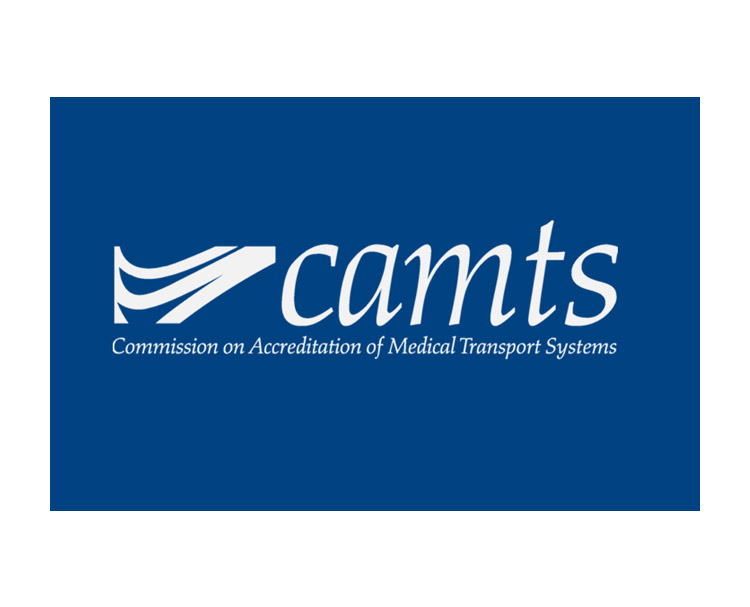
Commission On Accreditation Of Medical Transport Systems (CAMTS) Accreditation
CAMTS accreditation affirms that, by ground or by air, Children’s Nebraska provides the best pediatric and neonatal critical care
Learn More
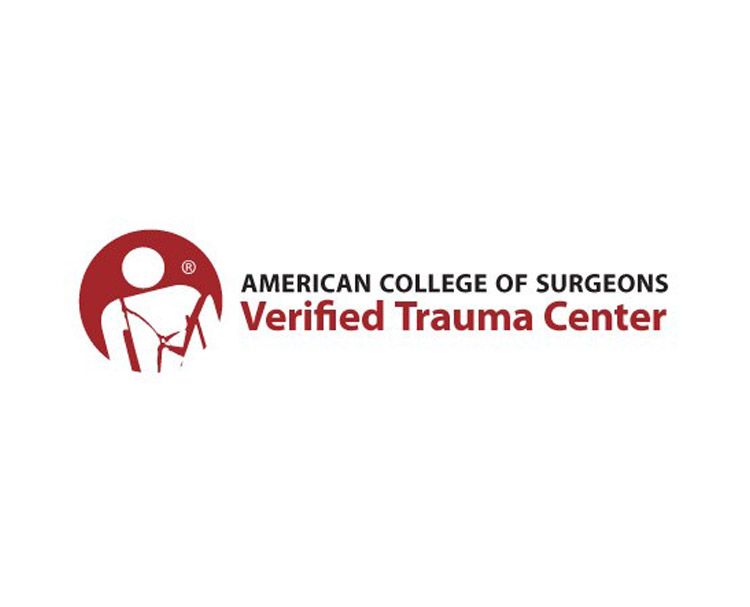
ACS (American College Of Surgeons) Trauma Verification
Children’s trauma program successfully completed the re-verification process for our trauma center and we were officially re-verified as an ACS Level II trauma center
Learn More
Beacon Award For Excellence
This is awarded to units that meet or exceed quality standards based on proven indicators of excellence.
Learn More
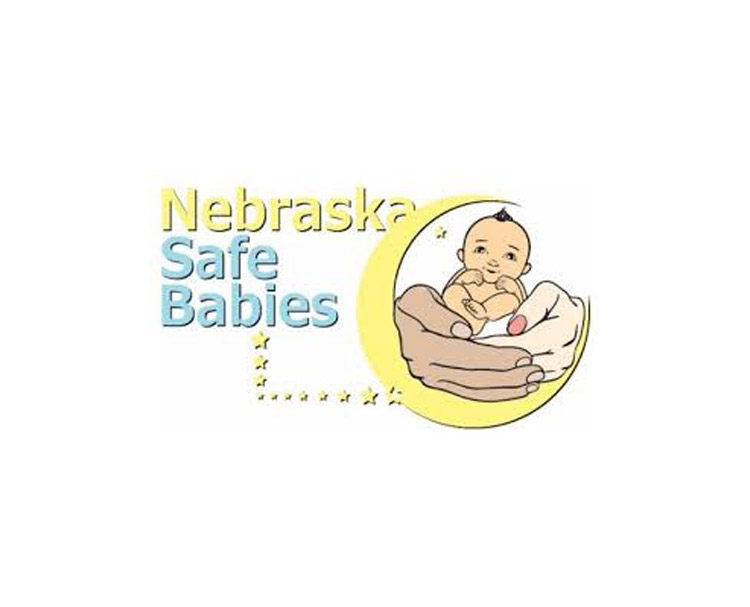
Recognized As A Safe Sleep Designated Hospital
The Safe Sleep Program promotes safe sleeping practices for infants to prevent Sudden Infant Death (SIDS).
Learn More

March of Dimes
March of Dimes honors nurses with 20+ years of experience who demonstrate the essence of nursing related to professional contributions, giving back and compassion for their patients.
Learn More & View Winners
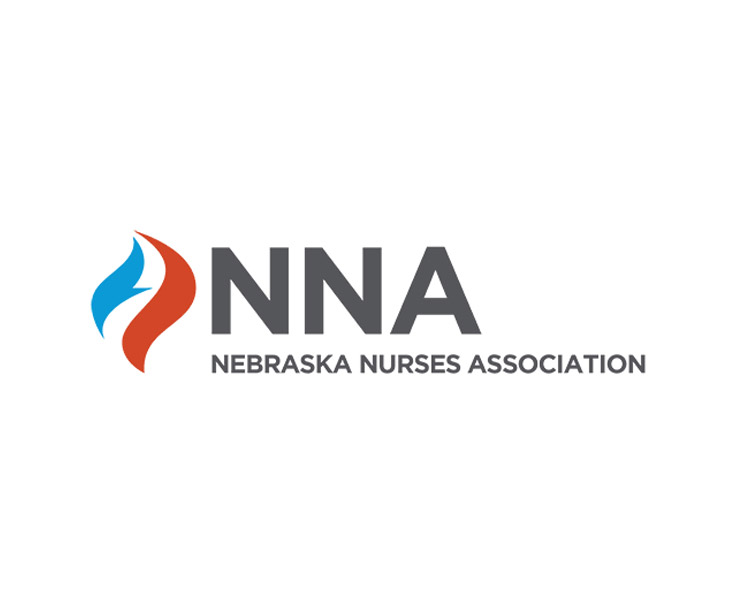
Positive Image of Nursing Award
The Positive Image of Nursing Award is a recognition and award program facilitated by the Nebraska Nurses Association to honor outstanding professional Registered Nurses whose commitment and dedication exemplify a “Positive Image of Nursing.”
Learn More & View Winners

The DAISY Award
The DAISY (Diseases Attacking the Immune System) Award is an international recognition program. DAISY Award recipients personify Children’s Nebraska’s remarkable patient experience.
Learn More & View Winners
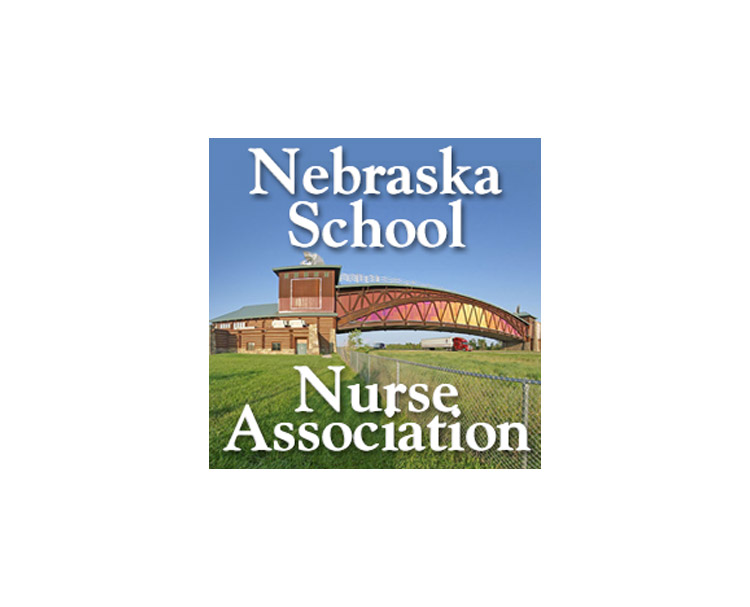
Nebraska School Nurse Of The Year Award
The Excellence in School Nursing Award, sponsored by the Nebraska School Nurses Association (NSNA), honors one School nurse who has demonstrated leadership and excellence in the practice of School nursing.
Learn More & View Winner

Robert E. Murphy Spirit Of Caring Award
This annual award, initiated by the family of Dr. Robert E. Murphy, honors a pediatric nurse who exemplifies those qualities that provide comfort and support to children and their families during a hospital or clinic experience.
Learn More & View Winner

Florence Nightingale Award
The Florence Nightingale Award is a peer-nominated award for nurses who exemplify characteristics that Florence Nightingale, the founder of modern nursing, demonstrated.
Learn More & View Winners
Contact Us
For questions about the 2019 Nursing Annual Report, please contact Mellisa Renter, Director of Professional Nursing Practice and Magnet Program Director.
Phone: (402) 955-4180
Email: [email protected]
